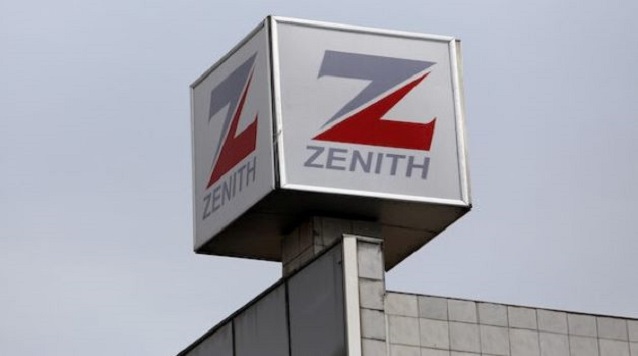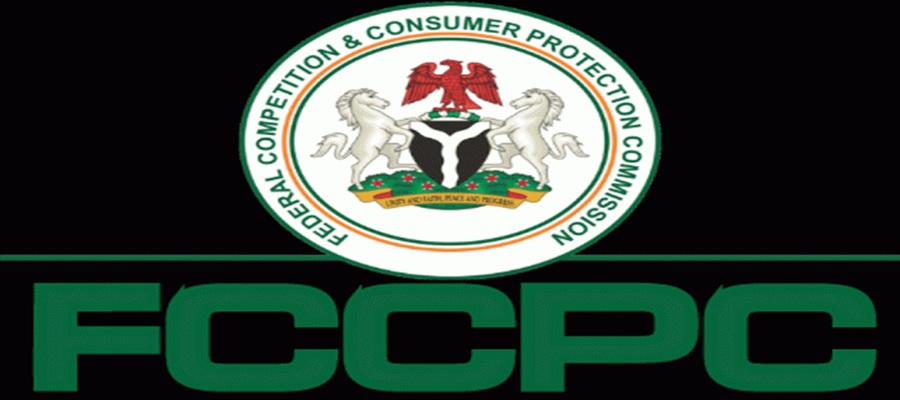E-Financial
CSCS Grows Dividend per Share by 36.0% to N1.17, as Profit Soars 41.4%

Central Securities Clearing System (CSCS) Plc, held its 27th Annual General Meeting (AGM) where the shareholders approved N1.17 dividend per share payout to all qualifying shareholders who held the shares at the close of business on Monday, 10th day of May 2021.

The AGM was held at the Idera Hall of the Raddison Blu Hotel, Victoria Island, Lagos whist observing social distancing protocols and hygiene, as advised by relevant authorities in respect of COVID-19 pre-cautions.
Following the approval of shareholders on the N1.17 dividend per share proposed by the Board, CSCS would be paying a total of N5.85billion to its shareholders, some 36.0% year-on-year growth in return to shareholders, when compared to the N4.3 billion dividend (i.e N0.86 dividend per share) paid in the previous year.
Speaking on the performance of the company, Mr. Oscar N. Onyema, the Chairman of the Board of Directors, noted, “despite the challenges in 2020, CSCS emerged stronger, delivering outstanding growth in top and bottom-lines, and executing far-reaching initiatives that would sustainably strengthen the competitiveness and resilience of the business.”
“Growing profit by over 41% in such a challenging year to deliver 20.3% return on average equity, the Board of Directors is more than ever upbeat on the value accretive prospects of CSCS. More importantly, we are enthusiastic on the progress made thus far in repositioning the business to efficiently play a more active and leading role in deepening the Nigerian capital market.
“With continuous investments in new technologies, talent, and work environment, we expect productivity to grow, as the Board continues to work with the Management to exceed stakeholders’ expectations”, the Chairman of the Board added.
Also commenting on the results, Mr. Haruna Jalo-Waziri, the Managing Director/Chief Executive Officer, said; “These impressive results reflect our enhanced collaboration with different stakeholders and their unflinching support and loyalty to CSCS, as the core infrastructure for the Nigerian capital market.
Hence, my colleagues and I are excited to dedicate this performance to our esteemed participants, regulator and the Board of Directors, whose support kept us stronger through the pandemic.
“We would continue to invest in our collective objective of deepening the capital market and broader financial system, even as we seek new and efficient ways of enhancing our partnerships for mutual prosperity.”
“Having laid a solid foundation over the past three years, we are more than ever optimistic on the prospect of our business, especially as we diversify the business for enhanced resilience against macro and market volatilities.
“The years ahead look challenging, albeit more promising than ever, as we reinforce our commitment to leveraging best-in-class technologies and our continuous investments in human capital in delivering value to all stakeholders”, the Chief Executive Officer added.
The shareholders, most of whom participated through proxies due to the extant COVID-19 precautions, were excited at the performance of the company and unanimously approved the dividend proposal of N1.17 per share, as presented by the Chairman, on behalf of the Board of Directors.
Speaking at the Annual General Meeting, Mr. Eric Idiahi, one of the proxy attendees of the Annual General Meeting and Managing Director, Verod Capital LLC; a core shareholder of CSCS Plc, lauded the Management for the unprecedented performance in such a challenging year and reiterated the support of shareholders for the Company, especially as the diversification of the business and culture of innovation should enhance the sustainability of the business and ensure its capacity to deliver superior returns to shareholders over the long term.
Commenting on the conduct of the Annual General Meeting, Mr. Obong Idiong, the Chief Executive Officer of Africa Prudential Plc, the Registrar to CSCS said, “This is a well conducted General Meeting, with due observance of all relevant statutory requirements, including COVID-19 precautions.
“I congratulate the Board and shareholders of CSCS on the impressive performance during the 2020 financial year and more importantly for a successful General Meeting.”
Interestingly, CSCS afforded shareholders who nominated proxies for physical attendance to observe proceedings of the General Meeting via Zoom and YouTube, as the event was streamed live through the session.
CSCS has a diversified shareholder base, including the Nigerian Stock Exchange, or Nigerian Exchange Group Plc, some of the largest Nigerian banks, private equity firms, other institutional investors and retail investors.
The shares are traded over-the-counter through the NASD-OTC, the premier market for trading unquoted securities of public limited companies. As at close of market on Monday, 17 May 2021, the bid/ask quote on the shares of CSCS indicate a price of N17.65 per share, having rallied 17.3% year-to-date, consolidating the strong performance of the share price over the past few year.
E-Financial
Zenith Bank Gets Regulatory Approval for Full Takeover of Paramount Bank

Zenith Bank, Nigeria’s second biggest lender by market value, has received approval from the Competition Authority of Kenya (CAK) to acquire 100 percent of Paramount Bank Limited, clearing a key regulatory hurdle in its East African expansion drive.

In a statement on Thursday, CAK said the transaction is “unlikely to lead to a substantial prevention or lessening of competition in the market for the provision of banking services in Kenya” and would strengthen Paramount’s financial position, helping it meet enhanced core capital requirements over the long term.
The Kenyan regulator noted that the deal poses no risk of reduced competition in the country’s banking sector. Zenith currently has no banking operations in Kenya, while Paramount is a Tier III lender with a modest 0.2 percent market share.
“The approval is based on the Authority’s determination that the transaction is unlikely to harm competition, while any negative public interest concerns regarding employment can be addressed through mitigating remedies,” CAK added.
Paramount met the Central Bank of Kenya’s KSh3.0 billion core capital requirement in November last year, reporting KSh3.118 billion after raising KSh332 million from shareholders, according to Mwango Capital, a Nairobi-based research firm.
The deal reflects a broader shift among banks in East Africa’s largest economy as lenders seek growth opportunities beyond increasingly saturated home markets marked by weak credit expansion, rising regulatory costs, and intense competition.
While several global banks — including Standard Chartered and HSBC — have scaled back African operations over the past decade, Zenith’s move signals confidence in selective regional expansion, particularly in East Africa, where economic growth and financial inclusion trends remain supportive.
The banking group is also widening its continental footprint. Last month, the lender disclosed plans to expand into Ethiopia, Africa’s second most populous country, as it targets generating up to half of its profits outside Nigeria over the medium term.
Historically, Nigeria, the continent most populous nation contributed as much as 90 percent of the bank’s earnings, a dominance that is now gradually easing.
Data cited by The Africa Report show that profit contributions from foreign subsidiaries rose to 27 percent in the first nine months of 2025, up from 14 percent in 2024.
Nigeria’s banking recapitalisation drive is also pushing large lenders such as Zenith to deploy capital beyond their home market. In January 2025, Zenith — which holds an international banking licence — raised N350.4 billion ($242 million), lifting its paid-up capital to N614.6 billion ($425 million).
With higher capital buffers in place, banks are reassessing how best to deploy fresh funds as domestic earnings normalise following two years of windfall gains.
As part of the approval, Zenith has been required to retain Paramount’s 78 employees for at least 12 months after the transaction is completed.
The bank is listed on the Nigerian and London stock exchanges and operates across corporate, commercial, retail, and investment banking. Its international subsidiaries span the United Kingdom, Ghana, Sierra Leone, Gambia, the UAE, and China.
E-Financial
Court Jails Ogiemwonyi, Stockbroker for Theft of $80,000, N953m Shares Proceeds

Victor Ogiemwonyi, a Lagos stockbroker, and Partnership Securities Limited, his company, have been convicted for allegedly stealing shares worth N953 million and $80,000 belonging to one Mr. Arnold Onyekwere Ekpe, a former managing director of Ecobank Transnational Incorporated (ETI).

Ogiemwonyi was convicted after he was found guilty of two-count charges bordering on stealing, contrary to Section 285(1), (9) (b) and (c) of the Criminal Law of Lagos State, 2011 slammed on him by the Economic and Financial Crimes Commission (EFCC).
Ekpe, through Messrs Margaret Onyema, his counsel, has sometimes in October 2016 in a petition to the EFCC alleged that he instructed the defendants to sell his 96,077,872 units of Ecobank Transnational Incorporated (ETI) shares, which were sold at the rate of N1,296,885,311.02.
But he said out of the proceeds of the sale, the stock broker paid only N300,000,000.00 to him while he dishonestly diverted the balance for personal use.
Following investigations, the defendants were charged with two counts of stealing.
Count one reads:
”Victor Ogiemwonyi and Partnership Securities Limited between the months of June, 2016 and September, 2016 at Lagos within the jurisdiction of this honourable court dishonestly stole the sum of N953, 535,861.57 (Nine Hundred and Fifty Three Million, Five Hundred and Thirty Five Thousand, Eight Hundred and Sixty one Naira Fifty Seven Kobo) being part of the proceeds of sale of 96, 077, 872 Ecobank Transnational Incorporated Shares, property of Mr. Arnold Onyekwere Ekpe”.
Count Two reads:
“Victor Qgiemwonyi and Partnership Securities Limited sometime between June, 2016 and July, 2016 at Lagos within the jurisdiction of this honourable court dishonestly stole the sum of USD$80,000.00 (Eighty Thousand United States of America Dollars) which formed part of the accrued dividends on 96, 077,872 Ecobank Transnational incorporated Shares, property of Mr. Anold Onyekwere Ekpe”.
At trial, the prosecution, led by Ola Sesan, called five witnesses and tendered 67 exhibits, all of which were admitted and marked by the court.
The defence, on its part, called three witnesses, including the first defendant.
Delivering judgment on Wednesday, Justice Modupe Nicole-Clay of the Lagos State High Court sitting in Ikeja, Lagos convicted Ogiemwonyi and his company, Partnership Securities Limited, guilty on all counts.
The court sentenced the first convict to pay a fine of N10 million, while the second convict was ordered to pay a fine of N20 million.
Also, the court directed the convicts to pay back the entire money stolen from the petitioner, both in naira and dollars.
Recall that Securities and Exchange Commission, SEC, had in 2017 banned Victor Ogiemwonyi, from operating in the capital market for life over alleged unprofessional conduct in the Nigerian capital market.
He was also banned for life from holding directorship position in any public company in Nigeria.
He was also ordered to pay a penalty of N100,000.
SEC said Ogiemwonyi was banned after he was found guilty of breaching Rule 1(iii) of the Code of Conduct for Capital Market Operators and Their Employees as contained in its Rules and Regulations made pursuant to the Investments and Securities Act 2007.
The ban also followed petition by EFCC to SEC accusing Ogiewonyi of misappropriation of about N1.24 billion, $80,000.00, stealing and dishonest conversion of proceeds of share sale belonging to an investor.
It was alleged that he used his company to dupe over 300 investors over N4.8 billion with Arnold Ekpe a former Managing Director of Ecobank Transnational Incorporated, ETI, being one of his victims.
E-Financial
FCCPC Delists Non-Compliant Digital Lenders Post-January 5 Deadline

Federal Competition and Consumer Protection Commission (FCCPC) has commenced enforcement actions against Digital Money Lending (DML) operators that failed to regularise their operations under the Digital, Electronic, Online and Non-Traditional Consumer Lending Regulations, 2025 (DEON Regulations).

FCCPC
The commission withdrew the conditionally approved status of non-compliant DML firms and removed them from its official register of approved digital lenders, effective immediately after the January 5 compliance deadline.
FCCPC Executive Vice Chairman and Chief Executive Officer, Mr Tunji Bello, announced the measures on Wednesday, emphasising their role in upholding regulatory standards and ensuring certainty in Nigeria’s digital lending sector.
Mr Bello stated that the compliance window provided under the DEON Regulations, which took effect on July 21, 2025, had closed, paving the way for fair, orderly and due process-driven enforcement.
He noted that the actions target persistent issues such as exploitative loan recovery tactics, data privacy breaches, harassment of borrowers and anti-competitive practices that have plagued the sector.
The DEON Regulations, issued on September 3, 2025, under the Federal Competition and Consumer Protection Act 2018, mandate all non-bank digital lenders to register, adhere to fair interest rates, ethical debt recovery and robust data protection measures.
Non-compliance now attracts severe penalties, including fines up to N100 million or one per cent of annual turnover, operational restrictions, app store delistings and potential director disqualifications for up to five years.
As of late 2025, the FCCPC had granted full approval to 438 digital lending companies, with recent data indicating over 521 firms now under regulatory scrutiny post-deadline.
The commission’s phased crackdown involves collaboration with the Central Bank of Nigeria, Google and Apple for account freezes and global app removals targeting unregistered platforms.
Industry watchers described the enforcement as a landmark move to sanitise Nigeria’s fast-expanding digital credit market, which has seen rising borrower complaints despite earlier 2022 interim guidelines.
The FCCPC reiterated its commitment to balancing innovation with consumer protection, urging affected operators to swiftly meet requirements for reinstatement.

 Telecom3 days ago
Telecom3 days agoSpacecoin Secures Licenses to Roll Out Satellite Connectivity in Nigeria, Kenya

 Telecom3 days ago
Telecom3 days agoGoogle Report: Nigeria Leads Global AI Adoption in Learning, Entrepreneurship

 E-Business3 days ago
E-Business3 days agoWhat the Retail and E-commerce Sector Should Expect in 2026 in Era of AI-driven Shopping and Privacy

 Telecom3 days ago
Telecom3 days agoAVEVA Names Khaled Salah Vice President for Africa to Drive Growth

 E-Financial3 days ago
E-Financial3 days agoFG Shops for N900Bn from Domestic Market with High-Yield Bonds

 E-Financial3 days ago
E-Financial3 days agoCBN Raises Alarm over Loan Defaults by Households, Corporates

 Telecom3 days ago
Telecom3 days agoNetflix Switches Warner Bros. Bid to $27.75 Cash Offer as MultiChoice Secures HBO Future

 General News3 days ago
General News3 days agoTaraba Adopts Electronic Case Management System



























